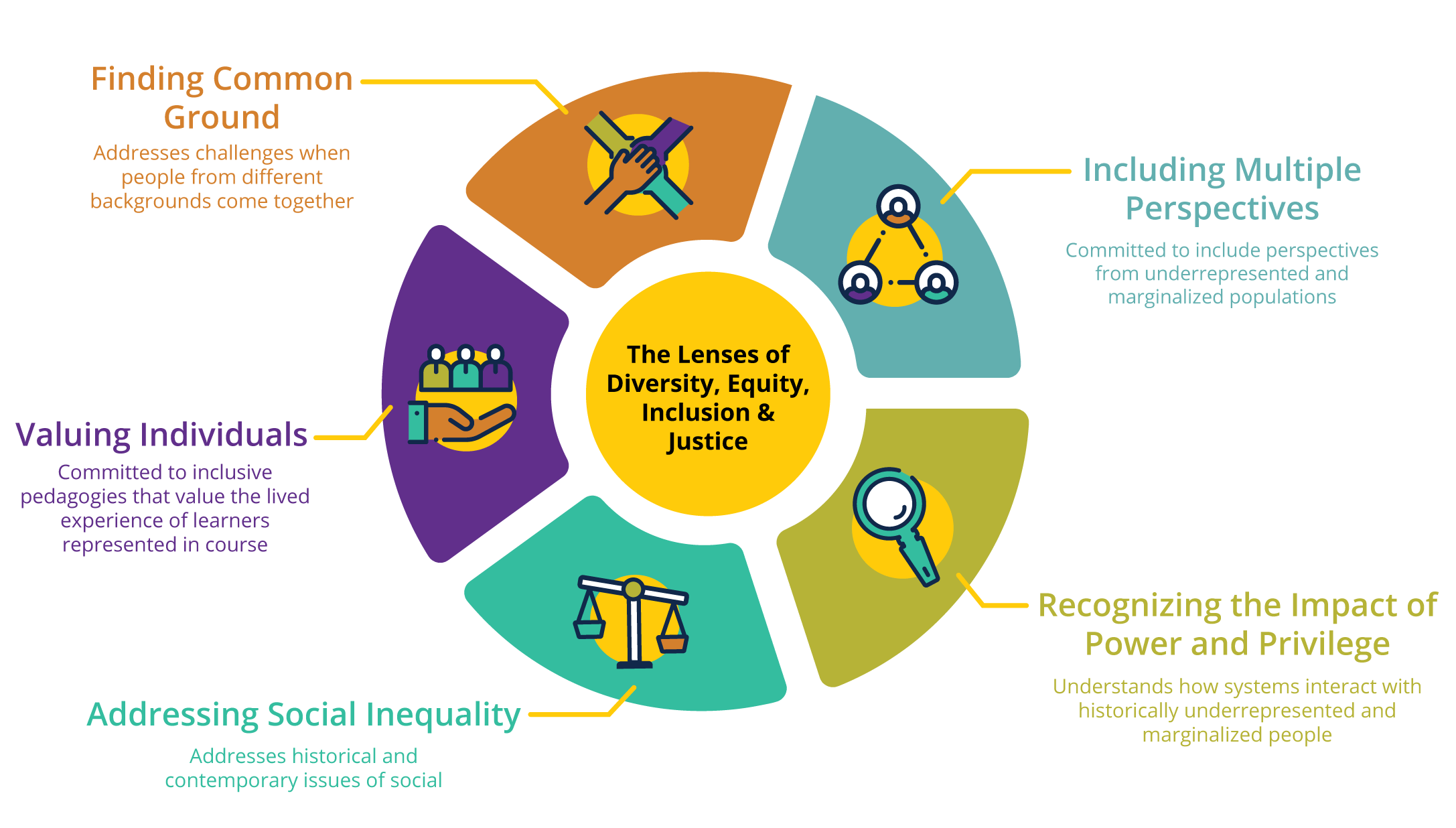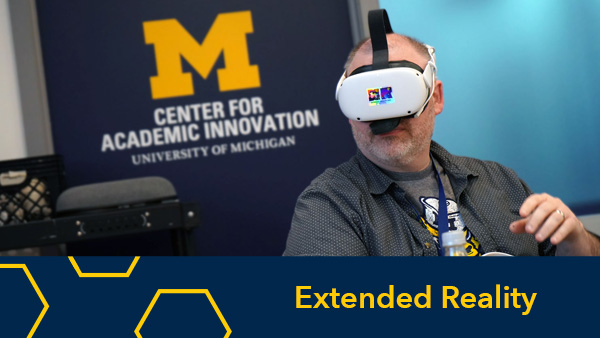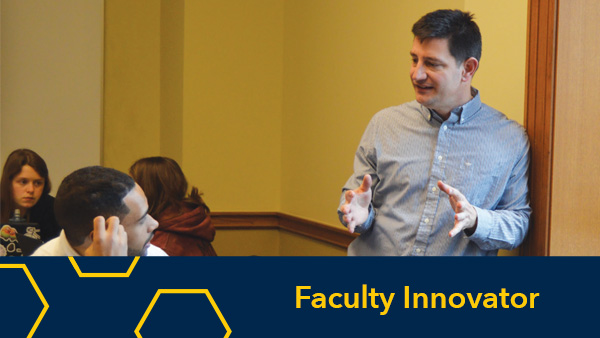Dr. Ahmed Lachheb, Learning Experience Designer and Dr. Rebecca Quintana, Associate Director, Learning Experience Design
With the goal of designing and offering inclusive online learning experiences, the Learning Experience Design (LXD) team at the Center for Academic Innovation (CAI) incorporates a range of approaches that attend to equitable and inclusive design goals.


Recently the CAI LXD Team has developed and begun to use the lenses of Diversity, Equity, Inclusion, and Justice (DEIJ) as an internal design tool (Chandler et al., 2020). The DEIJ lenses were adopted and adapted (with permission) from a framework created by the National Center for Institutional Diversity (NCID) for use in online learning design contexts. The National Center for Institutional Diversity’s original framework offers statements and guiding questions to support diversity research and scholarship.
These DEIJ lenses are: (1) Addressing Social Inequality, (2) Finding Common Ground, (3) Recognizing and Making Explicit the Impact of Power and Privilege, (4) Including Multiple Perspectives, and (5) Valuing Individuals. Through descriptive statements and guiding principles provided through each lens, LXDs use this tool to support discussions with faculty in regard to (a) overall pedagogy (i.e., the set of strategies or methods an instructor uses to teach), (b) content (i.e., materials and resources provided to learners), and (c) learning activities and assessments (i.e., opportunities for practice and graded assignments).
With the university’s renewed focus on DEIJ and the growth of online learning experiences, the LXD Team believes it is crucial to bring equitable and inclusive design approaches explicitly into their learning design work. Such approaches include thoughtful and deliberate DEIJ-focused discussions and collaborations with faculty and other University stakeholders. For example, as part of the online course development process, LXDs ask faculty to attend to learner audiences who may take their course, basing these reflections on residential teaching experience or new learner groups they hope to reach. This exercise ultimately leads to the development of learner personas: profiles of representative types of learners that describe their background, content knowledge, motivation for taking the course, and preferred ways to engage with the course (Quintana et al., 2017).
The DEIJ lenses provide foci for designers and faculty when thinking about learners’ background, content knowledge, motivation, and engagement preferences. All of this informs the design of the learning experience, such as defining learning outcomes, setting the “rigor” level of a course, and creating engaging activities and assessments that align with outcomes.
The CAI LXD team is also interested in advancing scholarship around their design practice. Currently, members of the LXD Team—Dr. Ahmed Lachheb, Dr. Rebecca Quintana, and Dr. Ji Hyun Yu and a CAI student fellow Astrid Zamora, who is also a doctoral candidate at the School of Public Health—are engaged in a research project that seeks to better understand how LXDs are adopting the DEIJ lenses and to articulate effective approaches and also improvements that come to the surface.
The research project team presented their initial findings at the Association for Educational Communications and Technology (AECT) 2021 Summer Virtual Research Symposium. Another member of the LXD team, Dr. Chelsea Chandler, has been leading a CAI-wide effort to design, develop and implement a DEIJ Repository. This repository will house concrete design examples that align with the DEIJ lenses and will be used as an internal design tool to collect, store, retrieve and showcase examples of learning design artifacts. Through this effort, the working group hopes to make the repository available as a resource to University stakeholders and colleagues at peer institutions.
The LXD team strives for inclusive design through a range of approaches that include the use of DEIJ lenses and continues to experiment with the use of the tool to reflect on its utility and to refine and improve practices and outcomes of their design work.



